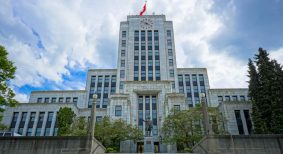Leaders in the provincial and national building industry want to see B.C. lead Canada in making all new buildings zero-carbon.The Pembina Institute has sent a letter signed by more than 30 members of the industry to local government mayors and councillors across British Columbia, calling on them to vote to adopt the province’s new voluntary Zero-Carbon Step Code (ZCSC). The letter is a specific call to not only adopt but adopt early, and at the highest level by 2025, rather than the currently scheduled 2030. Early adoption would avoid unnecessary and costly retrofits in the future by ensuring new homes and buildings are built right the first time.Municipalities have an important regulatory role in setting enhanced building performance standards and the ZCSC is an important new tool that enables local governments to meet climate targets associated with buildings by putting carbon pollution standards in place for all new homes and buildings constructed within their communities. “We have the experience and know-how to build highly energy efficient low- and zero-carbon homes in communities across B.C. As practitioners, professionals and advocates in the buildings sector, we are urging local governments to recognize these capabilities and adopt the highest tier of Zero Carbon Step Code,” reads the letter, which also states that all-electric buildings can be designed and constructed with zero to minimal additional cost.If adopted this code would ensure new buildings are heated and cooled by energy-efficient equipment such as heat pumps, rather than traditional furnaces and boilers, while also ensuring they meet high standards for insulation and ventilation. These standards would significantly reduce emissions while also reducing the energy and costs required to keep occupants comfortable and safe from increasingly extreme weather.
The signatories include organizations that build commercial, institutional and residential buildings (from high end private homes to affordable housing) across Canada, B.C., and locally in the Kootenays, Mainland/Southwest and Vancouver Island/Coastal regions.










